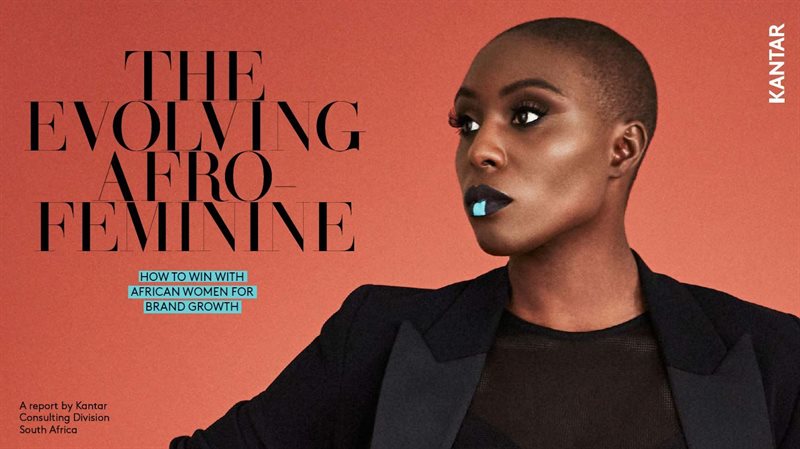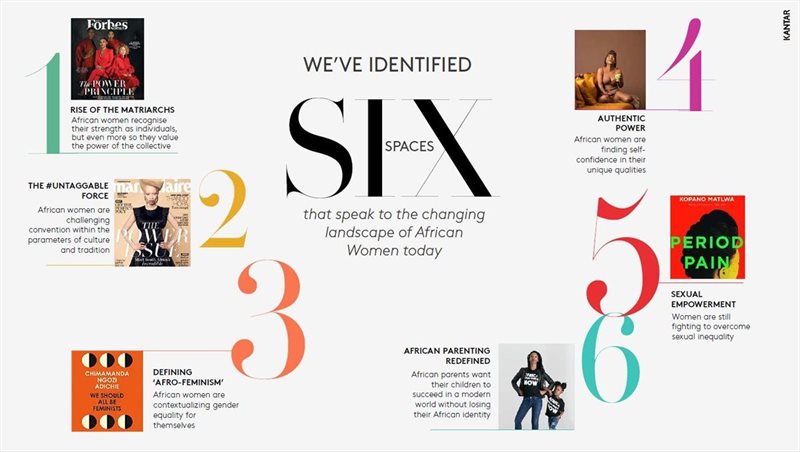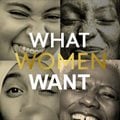The evolving Afro-Feminine: how to win with African women to unlock brand growth #WhatAfricanWomenWant

In the last decade, global brands have been at the forefront of marketing to women. But have local brands really stepped up to understand who African female consumers are, and what they really want? That’s the question.
African female consumers redefined: meet the evolving Afro-Feminine of 2021
To better understand the African female consumers of today, the team from Kantar immersed themselves in the world of culture, consumer, and brands; conducted expert interviews; consulted with African women in a consumer jamboree pre-pandemic; and surveyed clients using Kantar’s stakeholder engagement survey; all coupled with semiotic analysis as a cultural decoder. The results serve as a comprehensive scan of global and local brands alike to determine key spaces for brands to connect with female African consumers.
They found that the Afro-Feminine has evolved from provider and nurturer of the family, primary leader of our homes and communities and influencer and role model to those around her to come into her own. There’s great potential for brands to unlock growth with this rising and influential cohort, but few are getting it right. In fact, the Kantar survey shows that 70% of marketers surveyed believe that marketing efforts in their businesses don’t resonate strongly with African women, while three out of four brands surveyed don’t believe that brands in their industry are marketing effectively to African women.
Kantar’s Evolving Afro-Feminine study expanded to explain six spaces that speak to the changing landscape of African women today and how to connect with them to drive brand growth into the future:

1: Rise of the matriarchs: brand need to be curators of the collective
Globally, women recognise their strength as individuals, but they value the power of the collective more. Matriarchs therefore advocate for equal pay and leadership positions in the male-dominated world of corporate, striving to advance their careers and smash the glass ceiling.
Here in Africa, female entrepreneurs and activists have always shaped the future of the continent as a collective, with political movements also increasingly women-led, like the #FeesMustFall protest of 2015, started by female students Nompendulo Mkatshwa and Shaeera Kalla.
We therefore need to depict cohorts of successful women and celebrate how powerful women can be as a collective by promoting the unsung heroes.
2: The untaggable force: brands need to step out of stereotypes
Globally, women and girls are defying stereotypes and challenging expectations placed on them. With a renewed sense of self-belief and strength, they’re defying stereotypes and unapologetically occupying roles and spaces traditionally reserved for men.
But in Africa today, women are coming into their own, exploring and cementing unique identities for themselves. We need to encourage women to be more challenging in the way we show up, in terms of who we are. Just think of how lawyer, award-winning actress and model activist, Thando Hopa defies all categories, labels, and expectations.
3: Defining Afro-Feminism: brands need to recognise her roots
African women are contextualising gender equality for themselves, on the basis that women’s rights are human rights as the third-wave feminist movement seeks to correct the negative image of feminism, which is often associated with being privileged and superficial. This is slowly changing to become multi-generational, multi-ethnic, and inclusive of men.
In Africa, women are taking this to heart in defining their place in the world without displacing men. Nigerian author Chimamanda Ngozi Adichie is highly recognised for similar thinking on what feminism in an African context should look and feel like.
4: Authentic power: celebrate the Afro-Feminist’s uniqueness
Globally, women are challenging unattainable standards of beauty in favour of the unrealistic standards set by the media and society today, such as through Alicia Keys’ #NoMakeup movement and Mattel’s introduction of new body types for Barbie – tall, curvy and petite – with the aim of evolving beauty ideals to be more relevant in the 21st century.
In Africa, women are unapologetic about who they are and willing to show the world their #BlackGirlMagic. In 2019, Zozibini Tunzi challenged us to think differently about what a beauty pageant winner should look when she chose to keep her hair authentically natural – despite experts advising her otherwise.
5: Sexual empowerment: honouring the cause
While every woman wants ownership of her sexuality, African women are still fighting to overcome sexual inequality and no longer be shamed or ashamed when it comes to their sexuality.
The ‘Be a lady, they said’ video which trended on social media, speaks of the conflicting messages women encounter on a daily basis.
Be a Lady They Said from Paul McLean on Vimeo.
The oppression of women is both a systematic and cultural problem that manifests in different ways, but there’s a growing desire for women to have men better understand and be aware of the female experience because at its core, women’s issues are often men’s issues.
6: African parenting redefined: help her impart her heritage
Lastly, African parents want their children to succeed in a modern world, without losing their African identity. With a resurgence of pride in the African identity, preserving African culture through the next generation is a priority for African parents.
It’s a journey we’ll have to walk together, as we become curators of the collective and step out of the stereotypes to recognise those roots.
How can your brand truly power a difference for African women?
Follow our tweets on www.twitter.com/Kantar_AME and the #WhatWomenWant and #Afrofeminism hashtags for all the latest updates this #WomensDay.

About Nicole Shapiro
Nicole Shapiro is Director, Consulting Practice at Kantar. She is passionate about unlocking growth and opportunities for brands and businesses. She's an experienced brand specialist having worked across a host of industries and clients. With a passion for brand and business, she loves solving difficult questions and challenges.- Consumers face climate burnout as fears over global conflicts increase17 Feb 10:35
- Kantar announces senior appointments in South Africa and Africa20 Jan 08:53
- 10 marketing trends for 202618 Nov 08:51
- Rethinking AI-Generated advertising: How real people really react12 Nov 12:31
- The non-human consumer: How AI is transforming everyday buying decisions05 Nov 12:41









































